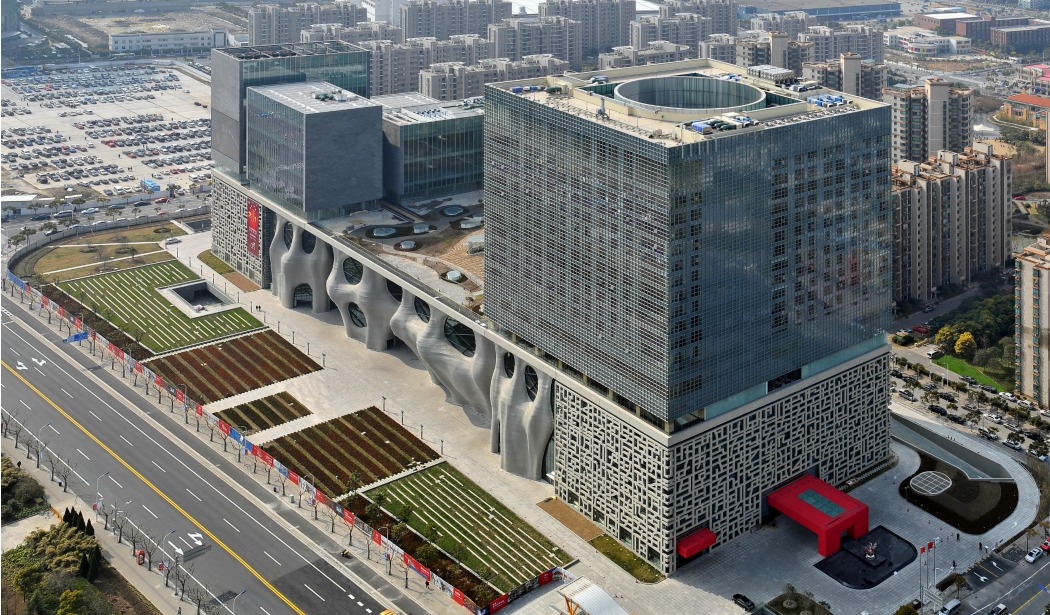
Photo: courtesy the Shanghai Himalayas Museum.
The Shanghai Himalayas Museum has named director Yongwoo Lee and Hans Ulrich Obrist of London’s Serpentine Galleries as the artistic directors of the inaugural edition of the Shanghai Project.
The interdisciplinary project, titled “2116,” will look ahead to the next century, when up to 76 percent of Shanghai’s current population could be underwater, should global warming continue unabated, according to a recent report by Climate Central. Participants will be asked to speculate on what the world might be like 100 years hence, and to think critically about how to best to save what’s left of the planet now, rather than later.
Obrist has been the co-director of the Serpentine since 2006, while Lee is the president of the International Biennial Association, in addition to his role at the Himalayas museum, which is run by local investment company the Shanghai Zendai Group. He co-founded the Gwangju Biennale in 1995 and curated its 2004 edition, before resigning as its president in 2014 in protest of censorship at the fair.
Hans-Ulrich Obrist, .
Photo: ©Patrick McMullan.
A vague press release describes the even more vague project as “an ideas platform” which promotes “a shared time and space for people to gather, procure, and exchange culture and knowledge.” The details are unclear, but Lee described the event as a “conference” to Art Radar in June.
The project will bring together artists, filmmakers, performers, musicians, designers, architects, writers (including journalists, bloggers, science fiction novelists, and poets), philosophers, historians, scientists, economists, geographers, sociologists, anthropologists, doctors, lawyers, engineers, hackers, and activists, all of whom will be dubbed “researchers” for purposes of their participation. The organizers are looking to involve both the international community and the local population in Shanghai.
Lee offered a sneak peek of preliminary plans in an interview with Art Radar, where he stated that sculptor Anish Kapoor would be on a panel titled “Who is the Audience,” with Larys Frogier, director of Rockbund Art Museum in Shanghai. Obrist, along with Qatari-American artist, writer, and filmmaker Sophia Al-Maria, will trade ideas in a panel titled “City as Image.”
Another component of the Shanghai Project, titled Qidian 奇点, involves an open call for submissions from members of 89plus, the international research project founded by Obrist and Simon Castets for innovators born in 1989 or later.
Yongwoo Lee.
Photo: courtesy the Gwangju Biennale Foundation.
The project will also include cross-cultural interventions, exhibitions, public art installations, commissioned architectural structures, and public programs, across the overlapping disciplines catagorized as “Visual Art; Architecture, Design, and Communication;” “Performance, Moving Image and Sound;” “Humanities and Social Sciences;” and “Science, Technology and Ecology.”
The Shanghai Project will be on view at the Shanghai Himalayas Center and other locations around the city September 5–November 13, 2016.